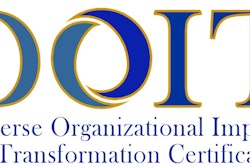Forty-five years after Dr. James P. Comer launched the School Development Program at the Yale University School of Medicine Child Study Center, the famed psychiatrist continues to speak authoritatively about the nation’s schools and K-12 education reform. At an age when many of his peers have retired to the sidelines, the 78-year-old remains a towering figure who is widely sought for his ideas and insights.
Known principally for the School Development Program (SDP), Comer continues to push for education reform that puts children’s social and emotional development at the center of practices and philosophy for improving schools. With SDP taking root initially in the New Haven, Conn., city schools, the program grew to train thousands of teachers and administrators from around the nation by the 1990s. The SDP training efforts reached a peak in the late 1990s when “whole” or comprehensive school reform movement programs enjoyed notable support from foundations and the federal government.
However, with the advent of the No Child Left Behind federal legislation and its emphasis on high-stakes testing in the early 2000s, school districts retreated from the whole school reform programs and focused their energies on prepping students for standardized tests that measure yearly progress in reading, writing and math.
In recent years, Comer has been hard at work presenting child development ideas and practices to education schools and national education organizations, such as the National Council for Accreditation of Teacher Education (NCATE). He sees a resurgence of interest in SDP’s ideas and practices, or what some call the Comer Process, and a willingness to instill them into teacher education and preparation programs.
“We’re experiencing a revival,” says Comer, who is the Maurice Falk Professor of Child Psychiatry at the Yale University School of Medicine’s Child Study Center. “There’s more interest in our work now within the last two years” than ever since the 2002 enactment of the No Child Left Behind federal legislation, he adds.
Hugh Price, the former president and CEO of the National Urban League and a longtime Comer friend, says it was quite evident in 2006 and 2007 when he co-chaired the Association for Curriculum Development’s Commission on the Whole Child that Comer’s child development ideas proved compelling as ever.
“[Comer’s] been at this for so long and his role has been so seminal …,” says Price. “He was there when you think about the concept of developing the whole child, the importance of social and emotional development, the linkage between academic and social development.”





















